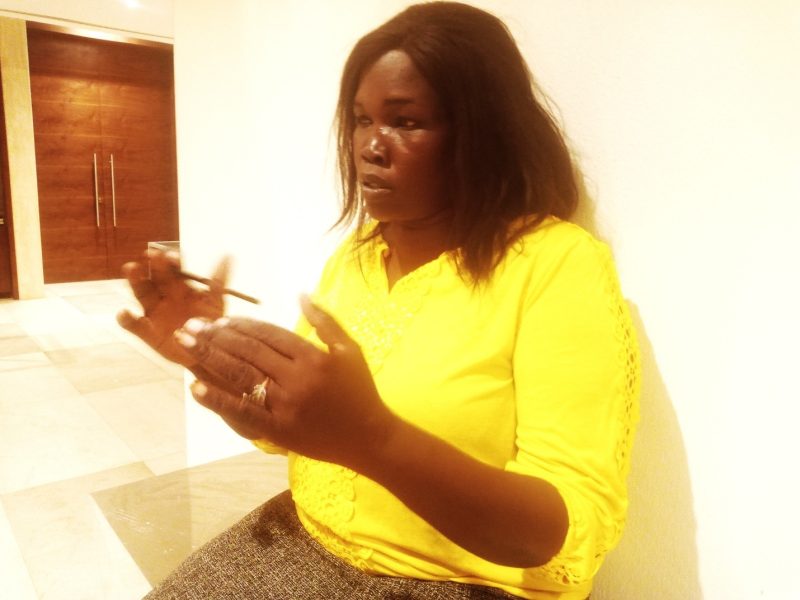
In 2015, Abuk Deng Alek opened a modest grocery shop in Juba, South Sudan’s capital, with high hopes and dreams of building a better future for her family. She imported food items such as rice, cooking oil, sugar, and flour from Uganda and quickly gained a reputation among her customers for fair pricing and quality products.
But nearly a decade later, in early 2024, those dreams came to a halt. Her business collapsed under the weight of soaring operational costs, insecurity along trade routes, and most notably, a crushing web of overlapping and excessive taxes.
“I used to import goods from Uganda and sell them in Juba,” she explained from her home in Juba suburb where she now operates informally. “But I couldn’t afford to keep the shop open. The taxes were too many, I was taxed at the national level, again by the state, and even at the local level.”
Abuk’s story echoes the struggles of many small-scale entrepreneurs in South Sudan who find themselves entangled in a complex and unregulated taxation system. She says she was often forced to pay levies to the National Revenue Authority (NRA), city councils, the chamber of commerce, and even to uniformed personnel at roadside checkpoints, many of whom had no formal authorization.
“There were times when I would pay up to seven different taxes in a single week. How can any small business survive that?” she asked.
Unable to cope, Abuk shuttered her shop and began working from home. She now makes and sells liquid soap, bakes mandazi (fried dough), and bread for neighbors and small vendors.
The transition has not been easy. A mother of six and the sole provider for her household, Abuk struggles daily to meet her family’s needs. “I can’t pay school fees on time. Sometimes we sleep hungry or skip meals so we can save money for rent or medical bills,” she said. “But I do what I can to keep my children alive and in school.”
She calls on the government to support, not stifle, small-scale businesses. “The government should protect us and help us grow. If we collapse, the economy collapses too.”
South Sudan’s tax system has long been criticized for its lack of coordination and rampant duplication. The country operates a three-tier system of tax collection, involving the national, state, and local governments, each with overlapping mandates.
Business owners like Abuk often find themselves taxed multiple times by various bodies, including city councils, traffic police, wildlife officers, civil defense, and even the army.
“There is no clear line of responsibility,” said Robert Pitia, chairperson of the Central Equatoria Chamber of Commerce. “The same businesses are taxed by both national and state authorities. This results in double taxation, which is driving away investors and crippling local businesses.”
Pitia added that the outdated 2009 Taxation Act must be urgently reviewed and replaced with a harmonized law that clearly defines the roles of different government institutions. “We need a single, transparent system that protects both the state’s revenue and the business community,” he emphasized.
The National Revenue Authority has taken some steps to address the problem. According to Commissioner General Simon Akuei Deng, over 80 percent of tax collection has now been digitalized, with cash payments being discouraged in urban centers with banking access.
“Anyone collecting taxes in cash in towns with banks is a thief,” Deng stated. “All official collections must go through the designated channels.”
Despite such efforts, many business owners say the problem persists on the ground. Informal collectors and illegal checkpoints remain common across major roads and within markets. Corruption is rampant, and traders say they are often forced to pay bribes to avoid harassment or confiscation of goods.
“Corruption is worse than killing,” declared Vice President of Infrastructure Taban Deng Gai during a recent two-day public-private sector conference on business sustainability. He acknowledged that unauthorized individuals continue to collect taxes illegally across the country.
“How can we develop as a country when people who are not part of the National Revenue Authority are collecting taxes on the roads and even along the rivers?” he asked. “According to the constitution, only the NRA is authorized to collect taxes. But what we see today is a crime.”
The consequences are already visible. Shops are closing, informal businesses are struggling, and foreign investors are pulling out. The economic pressure is mounting on families like Abuk’s, who have little to fall back on in the absence of social safety nets.
Abuk continues to persevere. Her days start before dawn, mixing soap and kneading dough. She delivers orders by foot and sometimes borrows money to buy ingredients. Yet she holds onto hope that change may come.
“All we want is a fair chance,” she said. “If the government streamlines the tax system and protects small businesses, we can thrive again. We are not asking for handouts, just a chance to work in peace.”
As South Sudan seeks to rebuild its economy and attract investment, the government faces a critical choice: continue with a fragmented, corrupt, and burdensome tax system, or reform it to foster a more inclusive and sustainable business environment.
For entrepreneurs like Abuk, the outcome could determine not just their livelihoods, but the future of their families.

